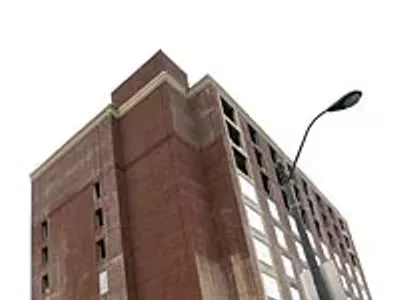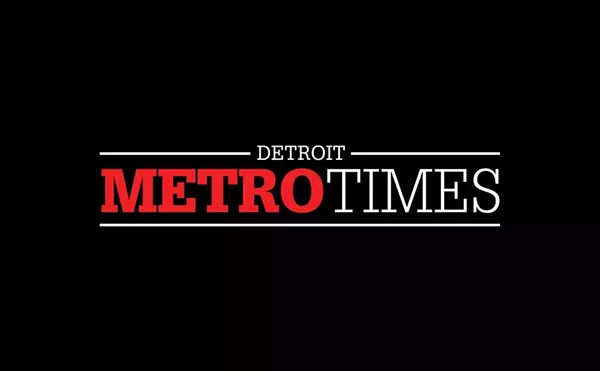
Audio By Carbonatix
[
{
"name": "GPT - Leaderboard - Inline - Content",
"component": "35519556",
"insertPoint": "5th",
"startingPoint": "3",
"requiredCountToDisplay": "3",
"maxInsertions": 100,
"adList": [
{
"adPreset": "LeaderboardInline"
}
]
}
]
Wayne County would take over collection of Detroit’s delinquent property taxes — a sum of around $60 million a year — under a bill introduced in the Michigan Senate.
If the bill passes and the county takes over Detroit’s delinquent collection, the city will for the first time in decades get reimbursed for all of its delinquent tax debts each fiscal year, including school taxes, under a program sponsored by the state of Michigan.
But there may be concerns about whether such a program cedes too much control to the county.
Currently, most of Detroit’s outstanding debt never gets paid to the city. Detroit is one of two Michigan cities that do not participate in the state program.
State Sen. Patty Birkholz, R-Saugatuck Township, introduced Senate Bill 700 in late August, and says that the city administration and state treasury department are in full support of it. She says the measure is something she’s wanted to see enacted for a long time.
“It’s always been my goal to have Detroit come into this process,” she says.
A Metro Times story (“Dearth & taxes,” Aug. 20-26) revealed that 120,000, or one-third, of all Detroit land parcels are tax delinquent. The city collects some 85 percent of its property taxes, while Wayne County collects 98 percent of its property taxes, and most cities nationwide hover around the 95 percent collection rate.
Part of the problem has been the city’s antiquated, non-computerized tax data system. That system is currently getting updated, but many tax documents remain inaccurate, according to Metro Times’ review.
The city’s tax collection problem has been a matter of discussion between the city and county for years. After the Metro Times story ran, city, county and state financial officials held several meetings to determine how to fix the problem, says Wayne County Treasurer Raymond Wojtowicz and Scott Schrager, special assistant to the Michigan state treasurer. The state acted as a mediator to develop a way to transfer tax collection to the county, says Schrager.
Wojtowicz, who invited Sean Werdlow, Detroit’s chief financial officer, Schrager and other representatives from the city, county and state, initiated the meetings. Werdlow was not available for comment on this story.
Wojtowicz asked Birkholz to sponsor the bill during the meetings.
There are two ways that Detroit could change its tax collection system. The state could pass a law to change the system, or the City Council could amend the City Charter. The latter action would require a vote of the citizens.
Detroit and Kalamazoo collect their own delinquent taxes. All other Michigan cities participate in a state program that ensures that cities get all of their tax money every year. The money for unpaid bills is reimbursed to the county and state governments through the sale of foreclosed properties.
In the past, the idea of turning over Detroit delinquencies to the county has met opposition from City Council. Council members have been concerned that the action could ultimately usurp Detroit’s ownership of huge parcels of land, and give away a chunk of city tax revenue to the county.
“I think we need to look very carefully at the issue,” says Councilwoman Sheila Cockrel. “How are we going to manage the potential development of land? My experience is that the devil is always in the details. We need to look carefully, do due diligence.”
If Detroit hands over collection of delinquent accounts to the county, the system will work like this: If the property owner pays their delinquent bill, they keep the land. If the taxes are not paid, the county will auction the property. The city will have the first option to buy it.
If Detroit doesn’t want the property, the county will auction the land to the highest bidder.
When the county sells the property, it will use the sale proceeds to pay itself back for money loaned to Detroit for the back taxes. Under the state “revolving fund” program, the county will loan Detroit all the money Detroit is owed in delinquent taxes every year. Those loans are paid off when foreclosed properties are sold.
Birkholz isn’t new to tax legislation; she rewrote the laws that changed the foreclosure process throughout Michigan in 1999. She was the leader on the bipartisan package of bills which patched holes in the old tax foreclosure process and sped it up. Foreclosure now takes place two years after property taxes become delinquent.
Because of that legislation, the city faces a ticking clock for changing its delinquent tax collection system.
Under the new foreclosure system designed by Birkholz and others, when Wayne County forecloses on properties in Detroit, all debts on those properties are wiped off the books. While every city in Wayne County gets reimbursed for its taxes when the county forecloses, Detroit does not, because Detroit does not participate in the county-state system.
If the bill passes, “proceeds for various levies — properties, schools — are remitted 100 cents on the dollar. They [Detroit] don’t have to wait for it,” says Wojtowicz.
Last year, the city contracted with municipal collection agency MBIA MuniServices to collect old property tax debts. MBIA is beginning its work now, and will collect on all debts more than one year old. But the company won’t address the city’s ongoing problem of unpaid property taxes.
MBIA will keep up to $17 million for its collections, of an estimated $300 million in Detroit taxes outstanding.
At present, SB 700 is pending in the Senate Finance Committee. The committee, chaired by Nancy Cassis, R-Novi, has yet to place the measure on the calendar for a hearing.
“My assumption is we’d be able to move it quickly,” once it gets out of committee, says Birkholz.
“Detroit supports it now, and the state treasury. My colleagues want it done quickly. They see it as a real advantage. This will give Detroit the ability to collect more revenue in 2004. They will lose if it does not get done.”
Of course, when news of the bill hits City Council, if the past is any indicator, it’s likely that council members will fight to quash it, despite the promise of millions of dollars in revenue for city coffers. In the past, the question has boiled down to one of power and control.
But it’s unclear whether the council has any say in the matter if the Legislature passes the bill. Calvin Hughes, chief of staff for Councilwoman Sharon McPhail, suggests that the city’s law department would have to advise the council on how it could respond to legislation passed without considering their concerns.
In 1981, a blue ribbon panel recommended that then-Mayor Coleman Young allow Wayne County to collect delinquent property taxes. Young rejected the recommendation, citing concerns about the ultimate control over foreclosed parcels of land. Instead, city residents continue to get a series of bills from the city and the county for taxes and delinquent taxes, causing confusion.
“It was supposed to save the city money, and spare people the confusion of saying ‘I got three bills,’” says Hughes, of the panel’s recommendation.
Hughes says if the county collects and forecloses on properties, “it could mean a lot of fixed-income and low-income individuals losing their homes.” That would be a policy issue for City Council, he says.
Birkholz says the bill will help bring Detroit’s collection process “into the 21st century.”
She says she’s pressing Cassis to put the bill up for discussion, otherwise it might get delayed till 2004.
Khary Kimani Turner is a Metro Times staff writer. E-mail kturner@metrotimes.com




